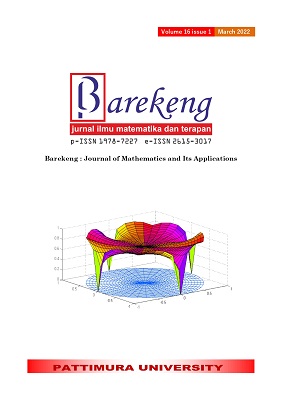ORDINAL LOGISTIC REGRESSION MODEL AND CLASSIFICATION TREE ON ORDINAL RESPONSE DATA
Abstract
Logistic regression (LR) is a model that associates the relationship between category-type response variables with quantitative or quantitative and qualitative predictor variables. The prediction of the LR model is in the form of probability. This research studied logistic regression (LR) models and Classification Trees in the case of ordinal response variable types. The data used in this research from The Central Statistics Agency (BPS). The research variables used are Human Development Index (HDI), gross enrollment rate for high school, percentage of poor people, open unemployment, and percentage of married age <17 years and some of the related predictor variables in Central Java Province in 2018. The HDI data is categorized into three levels, namely very high, high, and moderate. The results of the ordinal LR model show that there are three factors that influence the HDI, they are the gross enrollment rate for high school (GER), the percentage of the poor, and the proportion of women who married at the age of less than 17 years. Comparison of the accuracy LR model and Classification Tree in classification analysis shows that if the training data used is 60%-70% the LR model is better than Classification Tree, while the training data used is more than 70% and less than 86% then the Classification Tree model is better than LR.
Downloads
Authors who publish with this Journal agree to the following terms:
- Author retain copyright and grant the journal right of first publication with the work simultaneously licensed under a creative commons attribution license that allow others to share the work within an acknowledgement of the work’s authorship and initial publication of this journal.
- Authors are able to enter into separate, additional contractual arrangement for the non-exclusive distribution of the journal’s published version of the work (e.g. acknowledgement of its initial publication in this journal).
- Authors are permitted and encouraged to post their work online (e.g. in institutional repositories or on their websites) prior to and during the submission process, as it can lead to productive exchanges, as well as earlier and greater citation of published works.






1.gif)



